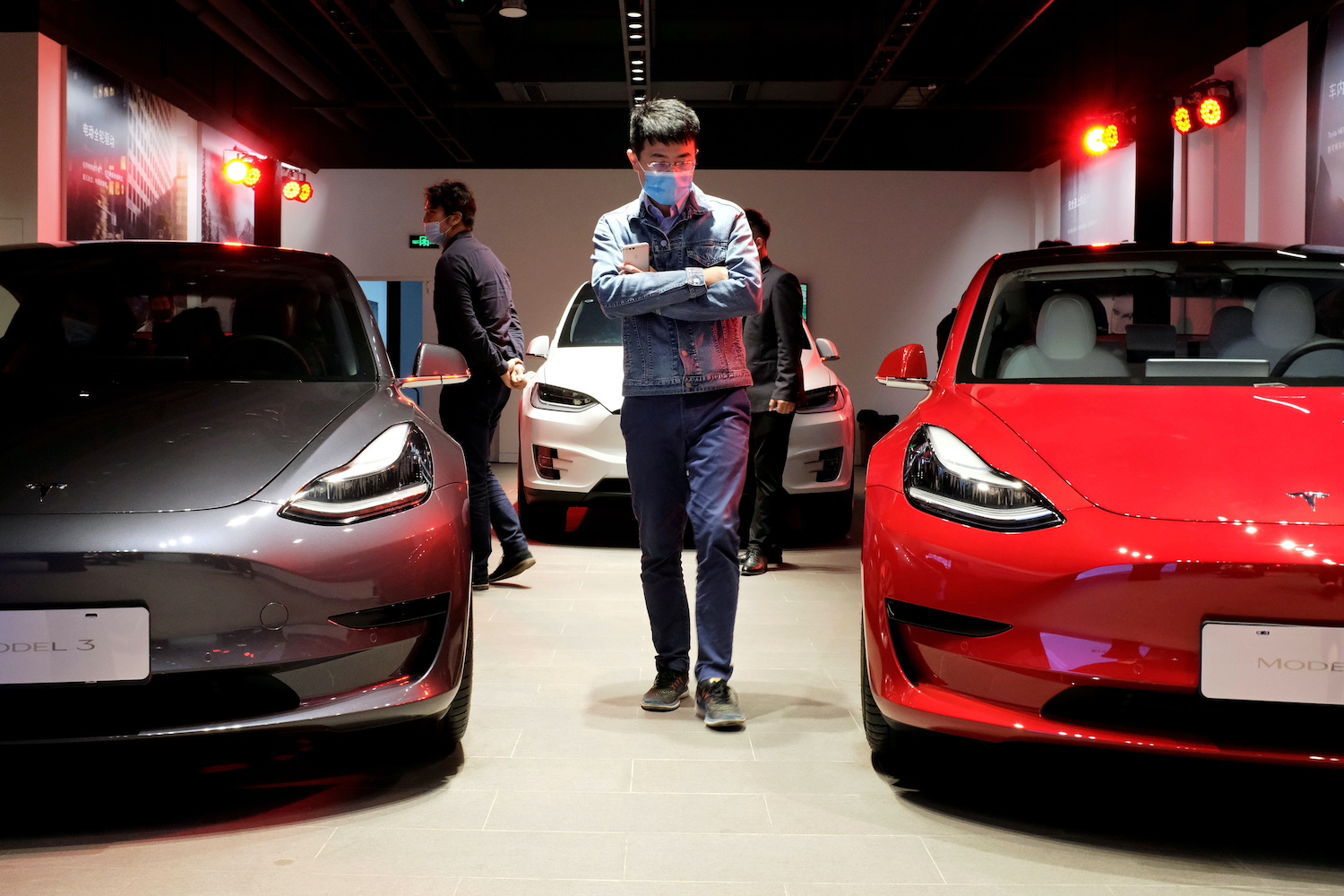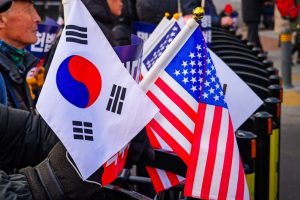• China accounts for 44% of the global EV market and Tesla’s share is 11%
• US firm faces competition from rival automakers like Nio and Xpeng
Tesla has held back on increasing the prices of its models in China – despite hikes in the US – as it battles to make a breakthrough in the world’s biggest electric vehicle market.
The American EV maker recently introduced an affordable Model Y version in China where it faces fierce competition from local rivals and problems that include product recalls, high-profile protests by consumers and pressure from regulators.
It has raised prices for the most affordable versions of its Model 3 and Model Y about a dozen times this year alone in the United States, according data tracked by Reuters, but has not altered its China price tags yet as it looks for a competitive edge.
Also on AF: China State Media Urge Calm After Regulatory Storm Triggers $2.6bn Outflow
However, Bernstein analyst Toni Sacconaghi says the introduction of the lower-priced Model Y in China “may make sustained margin improvement difficult” for Tesla and raised questions about “the health of Chinese demand.”
A study by Bernstein analysts found Tesla owners in China were less enthusiastic and had lower repurchase intentions than owners in the United States and Europe.
Tesla raised prices for the Model Y Long Range at least six times in the United States this year, bumping by $5,500 to $53,990. In China, the world’s most valuable carmaker raised prices of the Model Y SUV and Model 3 sedan only once this year.
The Model Y version has a price tag of 276,000 yuan ($42,393.71). The company also has launched promotional campaigns in China such as loan offers.
BATTERY PRICES
“I think Tesla is looking to be as competitive as it can be in China. Lower prices will be a part of that aggressive market positioning,” Roth Capital Partners analyst Craig Irwin said. “There is a very large difference in battery prices in the US and China, as well as local vehicle manufacturing costs.”
Tesla started production at its Shanghai factory in late 2019. It has boosted sourcing of cheaper local components, including batteries from China’s CATL and LG’s Chinese factory.
“It wasn’t so long ago that the group was trimming prices in the US to gain scale and maximise profitability, and it feels like we’re now seeing that in China too,” Hargreaves Lansdown analyst Nicholas Hyett said.
The low cost of producing local EVs in China would have a lasting effect for Tesla, said Gene Munster at Loup Ventures.
MARGINS BOOSTED
“Teslas are on average three-times the cost of a typical EV made in China. So they have to be priced less than the US to compete,” Munster said. “Prices of Teslas in China will be below rest of the world for the next decade.”
Tesla also cut costs and boosted margins in the US market by getting rid of some parts like a radar sensor and lumbar support.
In China, Tesla’s share slipped to 11% in the battery electric vehicle market, which excludes plug-in hybrid cars, in the second quarter from 18% a year earlier, according to GLJ research. But data from Morgan Stanley showed Tesla still held a US battery electric market share of nearly 70% as of February, although that was down from 81% a year earlier.
China accounts for 44% of the global EV market, a much bigger share than the 17% held by the United States.
LEGACY RIVALS
In China, Tesla faces competition from electric vehicle makers like Nio Inc and Xpeng Inc. In the United States, Tesla’s brand is stronger and its main rivals are legacy automakers like Ford and General Motors, which generate only a fraction of their sales from EVs.
Tesla CEO Elon Musk has reiterated that the company’s mission is to make electric cars affordable, and has blamed vehicle price increases on a shortage of chips and raw materials.
Tesla is coping with the chip shortage by using alternative chips and rewriting software, Musk said.
He provided a cautious outlook for chip shortage. “It does seem like it’s getting better,” he said on the second-quarter earnings call, but added: “it’s hard to predict.”
- Reporting by Reuters
Read more:
Tesla Pressured to Deliver Amid Questions Over Batteries, Bitcoin, China
























